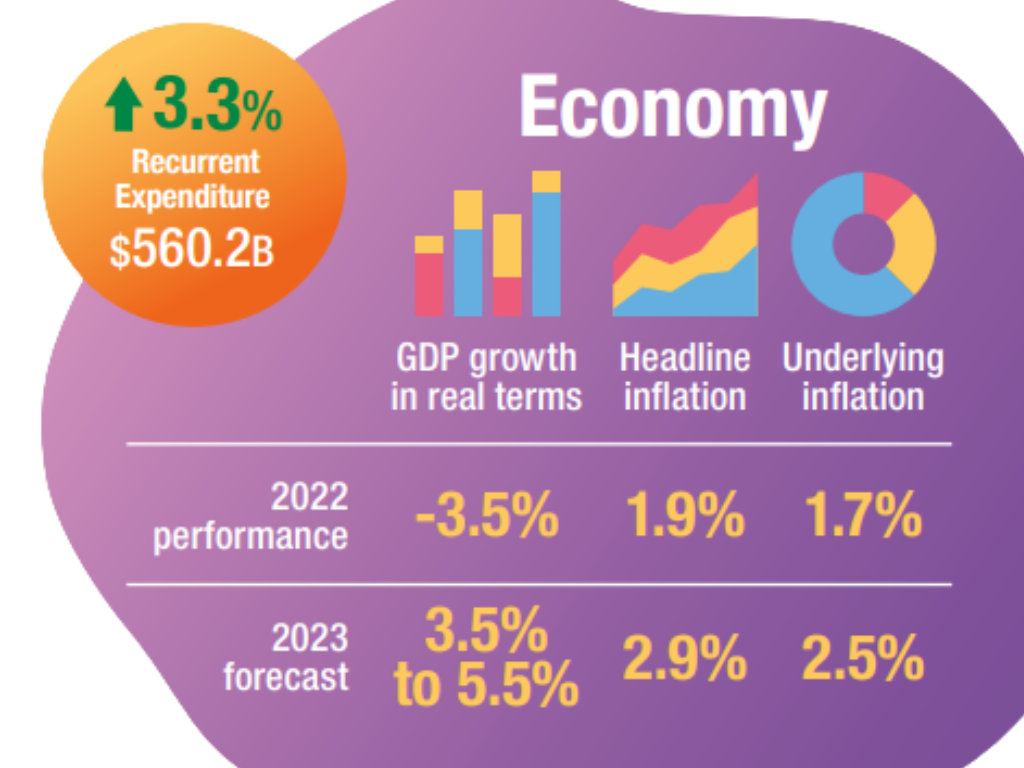
Key Highlights: How Hong Kong’s New Budget Pushes for Digital Innovation
by Rebecca Oi February 27, 2023Hong Kong’s economy faced significant challenges in 2022 due to adverse external conditions. The global economy was affected by rising energy and commodity prices and high inflation levels, adversely affecting advanced economies.
The Special Administrative Region, which is one of the world’s leading financial centers and a vital trade hub in the Asia-Pacific region, was not immune to these headwinds.
As a result, the country’s economic growth slowed, and businesses faced various difficulties, including rising costs and decreased demand for their products and services.

Paul Chan
Paul Chan, the Financial Secretary, revealed his 2023 to 24 Budget plans to reinvigorate Hong Kong’s economy. This budget is the first of the current-term government since the resumption of quarantine-free travel between Hong Kong and mainland China and the rest of the world.
The budget is vital to revitalizing the country’s economy and laying the groundwork for future growth and prosperity. Its proposals aim to create employment opportunities, promote innovation and technological advancement, and support the welfare of the local community.
Hong Kong’s economy is expected to experience a growth rate of 3.5 to 5.5 percent in 2023. In addition, the economy is predicted to achieve an average growth rate of 3.7 percent per year in real terms from 2024 to 2027, surpassing the growth trend of 2.8 percent experienced in the decade before the pandemic.

Developing Green technology solutions
Recognising the vital role that the digital economy plays in achieving high-quality development, the government is emphasizing the need to explore and develop digital industries.
To this end, the government is launching various projects and funds to support the growth and development of the digital economy.
The Financial Secretary has pledged to build a green technology ecosystem to attract top-notch enterprises and start-ups to establish operations in the city.
This move aims to offer talent training, create job opportunities, and promote the city’s transformation into a global green technology and finance center. Chan plans to form a Green Technology and Finance Development Committee to achieve this.
In addition, the government’s recent success in issuing HK$800 million in tokenised green bonds, with plans to issue HK$15 billion in retail green bonds in the next financial year, highlights their commitment to sustainability.
With HK$50 million earmarked for boosting the development of Web 3.0 and establishing a Microelectronics Research and Development Institute, it’s clear that the government is taking proactive steps to prepare for the future and position Hong Kong as a hub of technological innovation.
The financing will be channeled via Cyberport, a business park operated by the government that established the Web3Hub@Cyberport accelerator which was co-founded by Legislative Council member Johnny Ng Kit-chong.
The allocation of funds will facilitate major international seminars, cross-sectoral business collaborations, and youth workshops.
Hong Kong’s Securities and Futures Commission (SFC) recently published the proposed virtual asset platform regulations.
Starting from June 1, 2023, a new licensing system will be implemented, requiring all centralized virtual asset trading platforms engaged in business operations in Hong Kong or actively targeting the country’s investors to obtain a license from the SFC.
Creating opportunities for SMEs and Start-ups
To offer small and medium-sized enterprises (SMEs) more flexibility and stability, the Hong Kong Budget 2023 to 24 proposes extending the application period of all guarantee products under the SME Financing Guarantee Scheme (SFGS) from end-June 2023 to end-March 2024.
This move will allow SMEs more time to adjust and secure a firm footing. Individuals or organizations seeking loans, including existing borrowers submitting top-up applications, must contact the lenders directly to apply for a loan or credit facility under the SFGS.
Meanwhile, the Hong Kong Trade Development Council (HKTDC) will continue to offer support for SMEs through initiatives such as the Transformation Sandbox (T-box), Guangdong-Hong Kong-Macao Greater Bay Area (GoGBA), and Start-up Express.
The Hong Kong Science and Technology Parks Corporation (HKSTPC) will add HK$400 million to its Corporate Venture Fund. HKSTPC will merge its Acceleration Program with an additional investment of HK$110 million to create the Co-acceleration program to help technology start-ups grow into regional or global businesses.
Efforts to entice global talent and businesses
The Hong Kong government, led by Paul, has launched several initiatives to nurture talent in critical sectors, such as financial services, logistics, innovation and technology, and construction.
One of the initiatives in the Hong Kong budget is the fintech internship scheme, which provides subsidies for post-secondary students based in Hong Kong and the Greater Bay Area. This scheme encourages young people to develop skills in the fintech industry, a growing regional sector.
Another initiative is the Capital Investment Entrant Scheme, which encourages investment in the local asset market and provides an opportunity for investors to move to the city. This initiative is part of the government’s effort to attract professionals and top university graduates to Hong Kong.
In addition, the government has launched a pilot program to enhance talent training for the insurance and asset management sectors. The program provides training opportunities for professionals in these industries and aims to attract more talent to these sectors. The government has extended this program for three more years to nurture talent and competency in the industry.
These initiatives demonstrate the government’s commitment to developing key sectors and attracting talent to Hong Kong, which is crucial for the region’s economic growth and prosperity.








